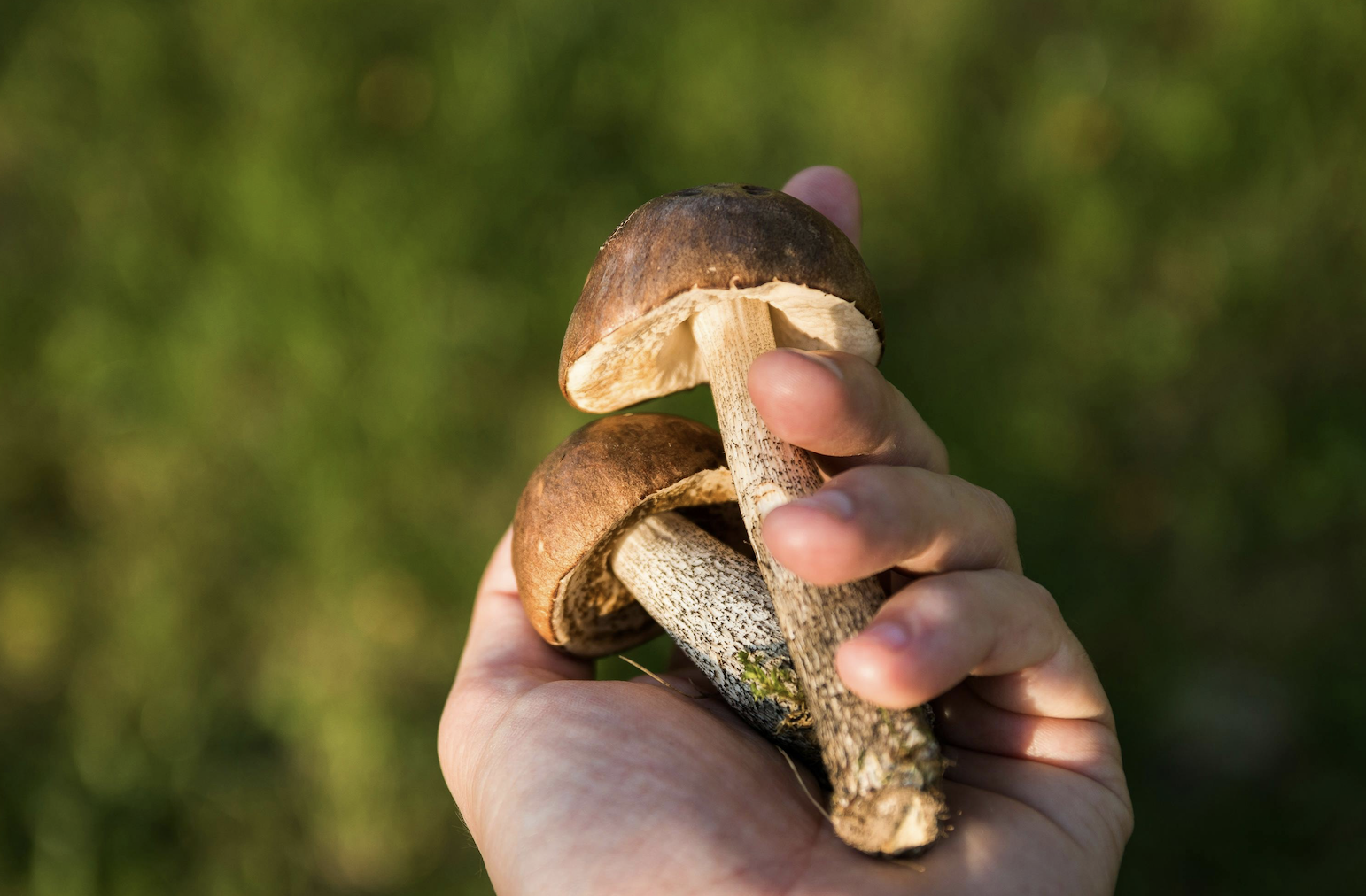
In recent years, mushrooms have been trending. They’ve taken the lead in culinary, where they earned titles like ‘ingredient of the year’ by The New York Times and the Mushroom Council, while also mushrooming through in the medical field, drawing from both the long history of Traditional Chinese Medicine and modern scientific studies of how they can help with treatments. Lastly, mushrooms are making a mark in the eco-conscious movement even in areas like fashion, interior design, and home decor.
When it comes to taking it, though, adding mushrooms to your diet can be overwhelming, especially considering the wide range of options available and their diverse uses. With so many varieties to choose from, which ones are best for boosting your immune system? Each mushroom offers unique benefits, and in this article, we’ll help you identify the perfect match for your needs.

- Best for Brain Boost: Lion’s Mane (Hericium Erinaceus)
From its name alone, this mushroom appears to sprout hair cascading down from its body. It is white in hue and bears a resemblance to pom-poms. It’s not your regular-looking mushroom, but according to the Cleveland Clinic, it offers support to three key areas of our body: the brain, heart, and gut. Recent research from Healthline has shown that it can protect against dementia and Alzheimer’s disease due to compounds found in Lion’s Mane called hericenones and erinacines that focus on the stimulation of brain cells.
The growth of cells can also help alleviate mild symptoms of depression and anxiety, aid in speeding up recovery from nervous system injuries, protect our digestive tract, and reduce the risk of heart disease.
- Best for Immune Defense: Chaga (Inonotus obliquus)
Chaga typically thrives on birch trees, although it can also be spotted on alder, aspen, and elm trees. Its appearance is far from that of the typical mushroom. They are seen flourishing in conks and sporting a burnt charcoal color. Among its unique compounds are Inonotus obliquus and beta-glucans, which bolster immune defenses.
With its potent antioxidant properties, Chaga helps shield the body from free radicals and combat inflammation. Emerging research indicates its potential in cancer-fighting efforts and its ability to lower blood sugar and cholesterol levels.
- Best for Heart Health: Shiitake (Lentinula edodes)
Shiitake is a popular mushroom because of its rich flavor, which resembles meatiness. Its color ranges from tan to dark brown, and it appears like an umbrella with its caps. The unique compound found in this mushroom, lentinan, is known for its immune-modulating properties, while eritadenine helps reduce cholesterol levels in the blood.
Shiitake mushrooms have health benefits. They are effective in combating microbes and have traditionally been used to aid common colds. They also contribute to heart health by preventing cholesterol absorption in the intestines and boosting white blood cell production. Additionally, they are a rich source of various vitamins and minerals, including Vitamin D, Copper, Selenium, Thiamin, Riboflavin, Niacin, Vitamin B6, Folate, Potassium, Manganese, Magnesium, Iron, and Phosphorus.

- Best for your Mental Health: Reishi (Ganoderma lingzhi)
Reishi mushrooms are easily identifiable due to their fan-like shape and shiny red to brown caps, accompanied by dusty spores. This mushroom has earned the titles ‘King of Mushrooms’ and ‘Mushroom of Immortality’ because of its wide range of health benefits and its revered status in Eastern medicine. Amino acids are one of the unique compounds found in Reishi, which are abundant in quantity and aid in muscle and connective tissue growth.
Considered a symbol of longevity in China, Reishi has the potential to boost the immune system, exhibit anti-cancer properties, regulate microbiota composition by increasing healthy beneficial bacteria, and alleviate anxiety and depression, offering a natural means of supporting mental health.
- Best for Energy and Endurance: Cordyseps (Ophiocordyceps sinensis).
One fact about Cordyceps is that it isn’t considered a traditional mushroom but rather a parasitic fungus that attacks insects, primarily affecting caterpillars, which they inhabit and use as a food source.
Technically, it is still classified as a mushroom to describe the fungus, but it differs greatly from the typical appearance of mushrooms. This fungus grows out of the body of the insect it chooses to inhabit, often sprouting on its host’s body with an elongated, yellowish-brown, cylindrical shape.
In a study examining Cordyceps’ immune and biological potentials in healthy Koreans, researchers found an increase in the production of natural killer cells (NK), responsible for detecting and destroying harmful cells such as viruses and tumors.
Additionally, Cordyceps offers other health benefits, including support for the immune system through the production of immune cells, anti-cancer properties, improvement of kidney function, and enhancement of the respiratory system.

Best Practices for Eating Mushrooms and Ensuring Safety
Taking the time to learn different types of mushrooms is an essential first step before incorporating them into your meals. Knowing that some wild mushrooms can be poisonous is crucial, so ensuring their safety is your best move. Opting for fresh mushrooms and avoiding contaminated areas when foraging are proactive measures to safeguard your well-being.
Similarly, when selecting store-bought mushrooms, thoroughly inspecting them for signs of disease or spoilage is advisable. As always, washing mushrooms before use is essential for a safe and enjoyable meal.
There are numerous ways to incorporate mushrooms into your diet. They can be consumed in various forms, including powdered, extracted, cooked form, or as supplements. However, it’s important to be mindful of the correct dosage.
While mushrooms have been recognized for their medicinal benefits for decades, it is crucial to understand that they should not serve as a substitute for medical advice or treatment. They are not magic pills and have limitations, especially for individuals with preexisting conditions. Always consult with your healthcare provider before incorporating mushrooms into your routine or taking any medications. Stay safe, stay informed, and savor mushrooms! So, which one would you like to try first?
Tags
References:
The History of Mushroom Medicine: From Ancient Times to Modern Science
Mushrooms continue to trend as ‘Ingredient of the Year’
Top 8 Medicinal Mushrooms For Immune Health
Study: Cordyceps spp.: A Review on Its Immune-Stimulatory and Other Biological Potentials



0 Comments